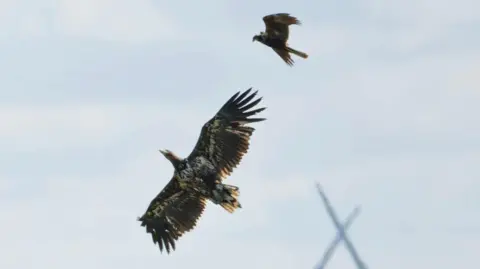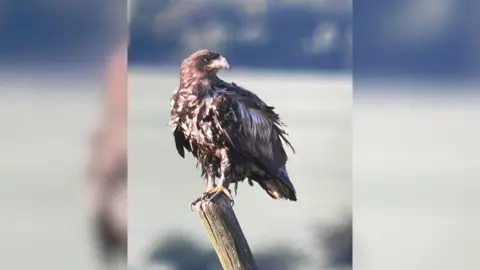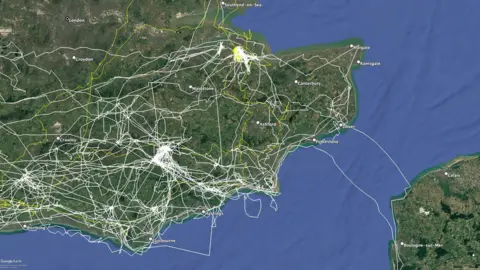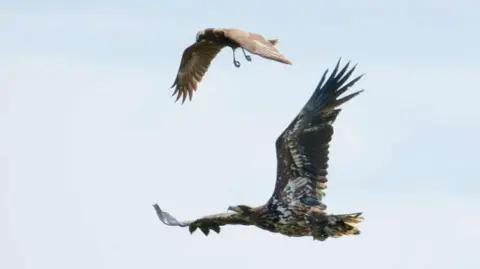White-tailed eagles thriving across South East
 Adam Granger
Adam GrangerWhite-tailed eagles have been mapped flying up to 100 miles (160km) a day over the South East.
Thirty-seven birds were released on the Isle of Wight in 2019 after being driven to extinction in the UK, and their daily explorations have taken them over Sussex and Kent, including the Elmley Nature Reserve on the Isle of Sheppey.
The birds, which are the UK's largest bird of prey with a wing span of up to 2.5m (8.2ft), are being monitored by the Roy Dennis Wildlife Foundation.
Simon Ginnaw, lead nature guide at Elmley, said: "It's absolutely massive to have one on a reserve where I've been birding since I was small, it means a lot."
 Elmley Nature Reserve
Elmley Nature ReserveWaterways and marshland have made Elmley a prime hunting ground, with the reserve saying seven different white-tailed eagles have visited over the last six years.
The latest, tagged as Eagle G603, has been especially active on the reserve this summer.
'I cried when I saw it'
Natasha Marks, a birdwatcher, described the moment the eagle landed just 5m (16.4ft) away from her.
"Not to be dramatic, but I did cry when I saw it," Ms Marks said.
"It takes your breath away."
Workers on the reserve said he dwarfed other birds of prey, such as red kites and marsh harriers.
"Having an apex predator like that here, it's an indicator of an underlying health in the wider eco system," Mr Ginnaw added.
 Google/Roy Dennis Wildlife Foundation
Google/Roy Dennis Wildlife FoundationSome eagles have even been tracked as far afield as Scandinavia, however, the birds always return, having established the South of England as their home.
Dr Tim Mackerill, from the Roy Dennis Foundation, has been tracking these types of journeys for years and says habitat preservation will be key in the future.
"Kent and Sussex have been really important for the birds since we started the project," he said.
"These young birds are finding that habitat which is a really positive sign for the future."
 Adam Granger
Adam GrangerIn 2023, chicks hatched in England for the first time in nearly 250 years at an undisclosed nest site in Sussex.
But many of the recent cohort will not be ready to rear chicks for a while longer, since that typically starts at five to six-years old.
Follow BBC Kent on Facebook, on X, and on Instagram. Send your story ideas to [email protected] or WhatsApp us on 08081 002250.
